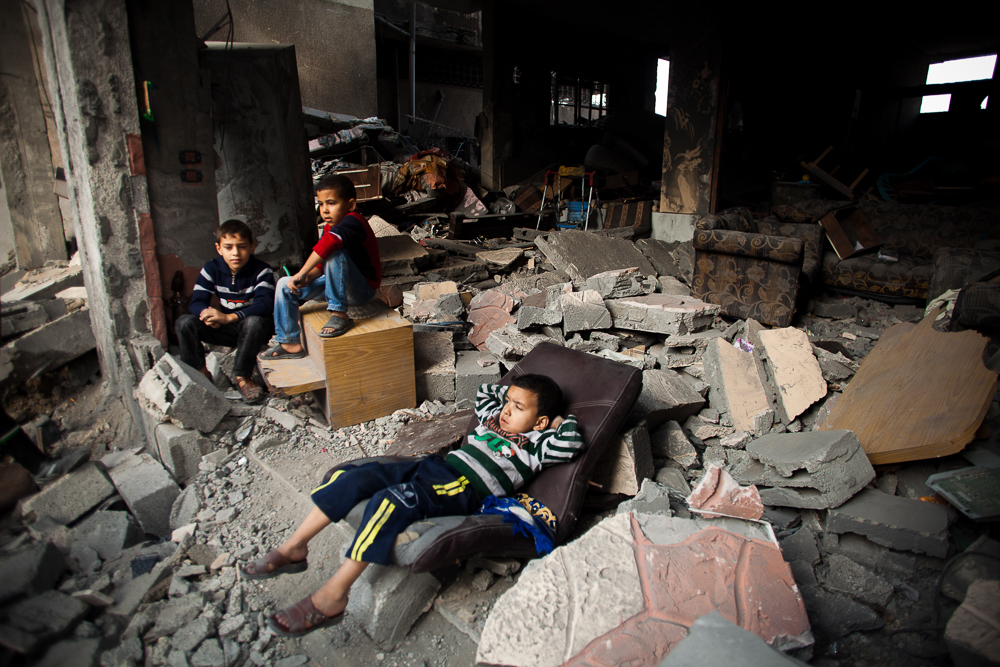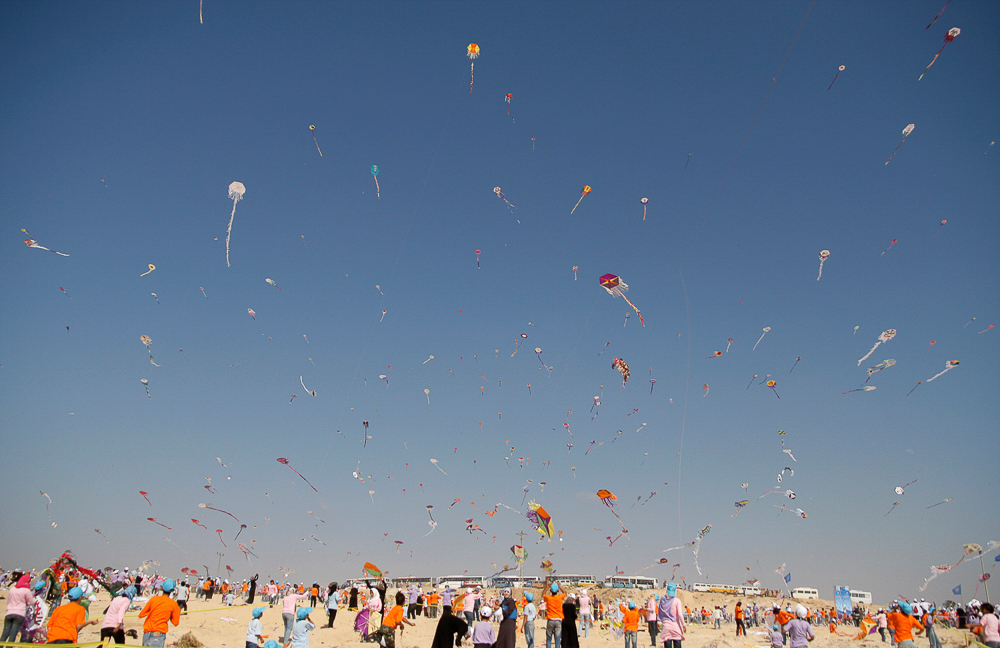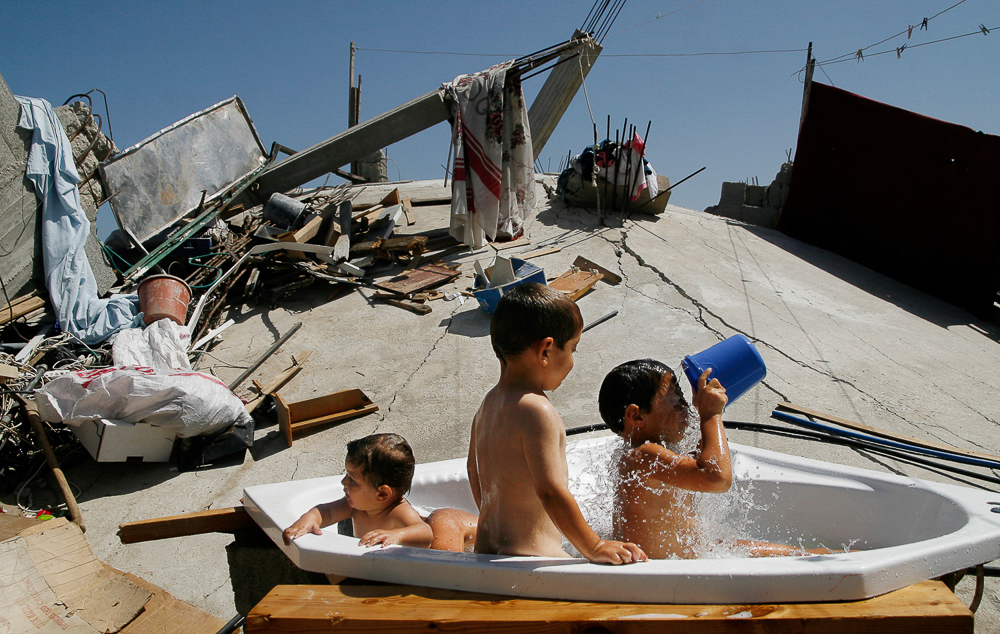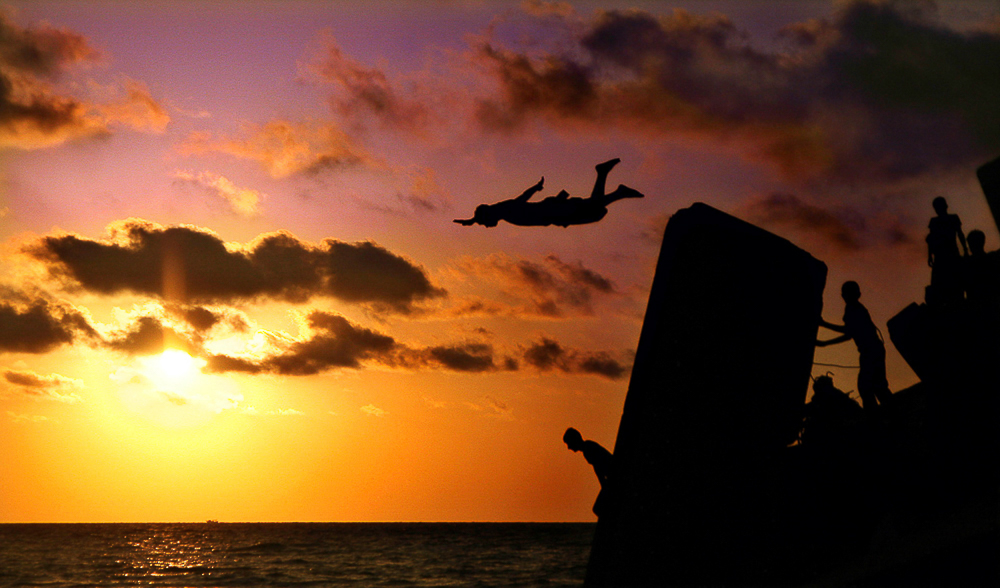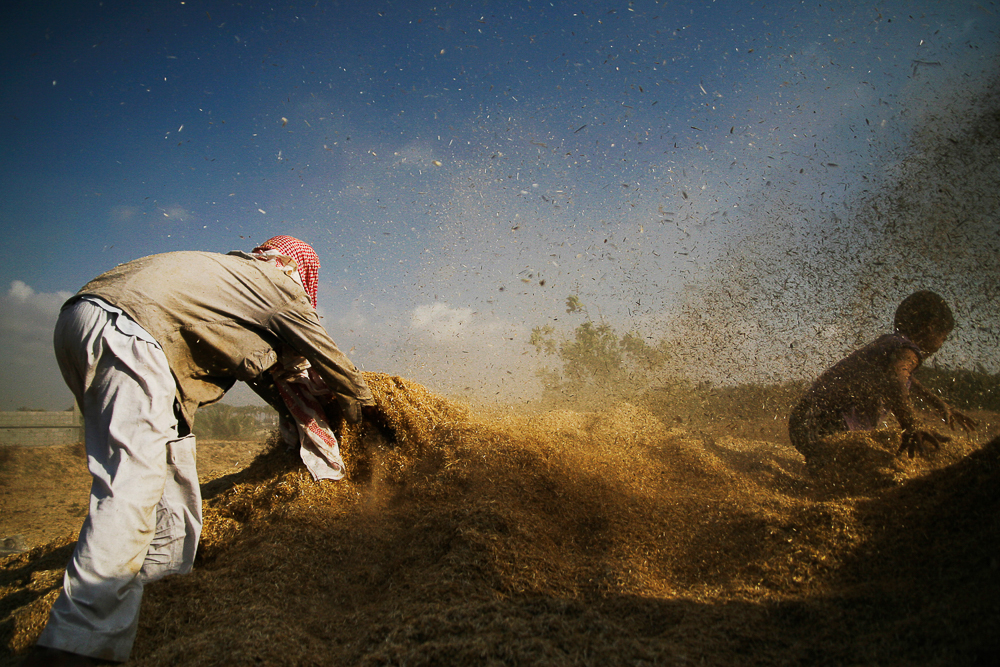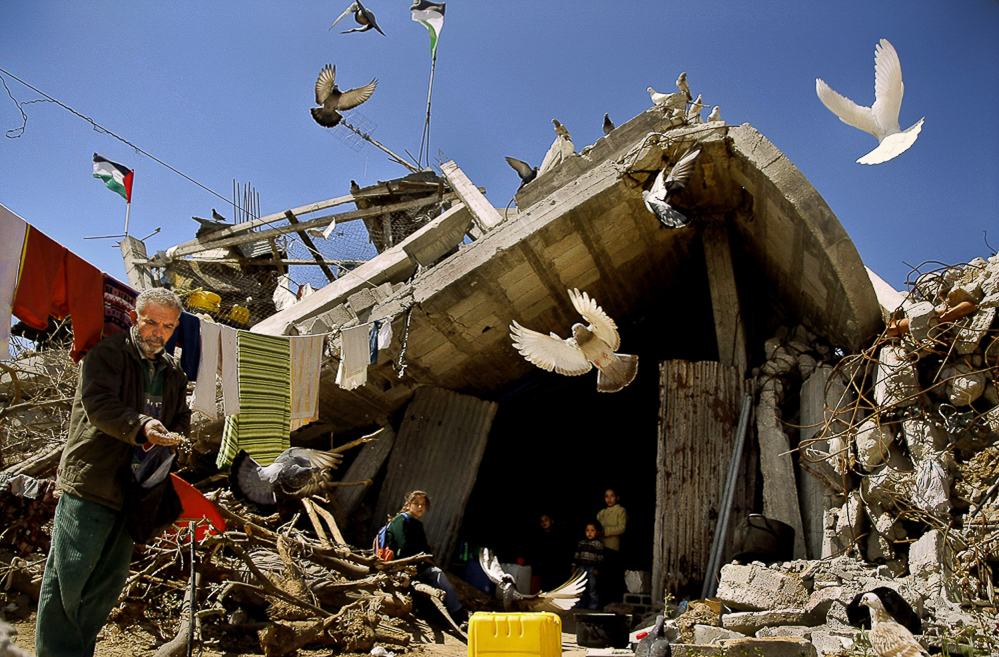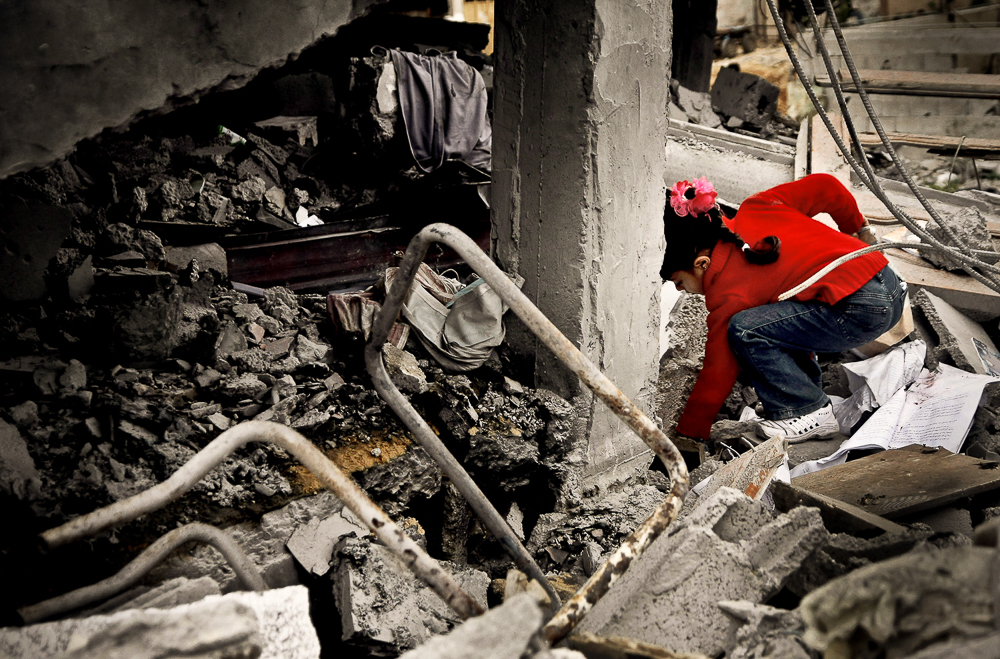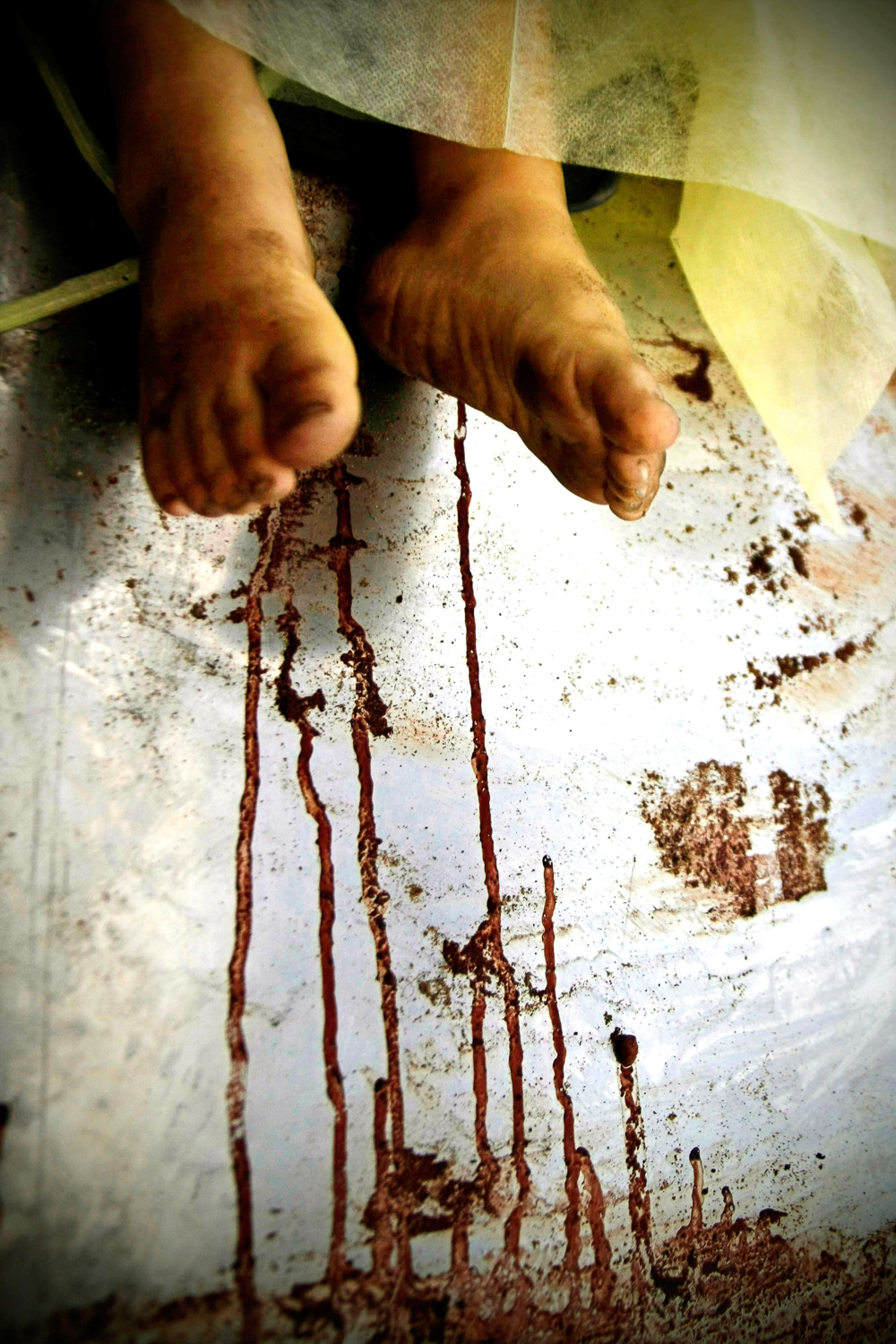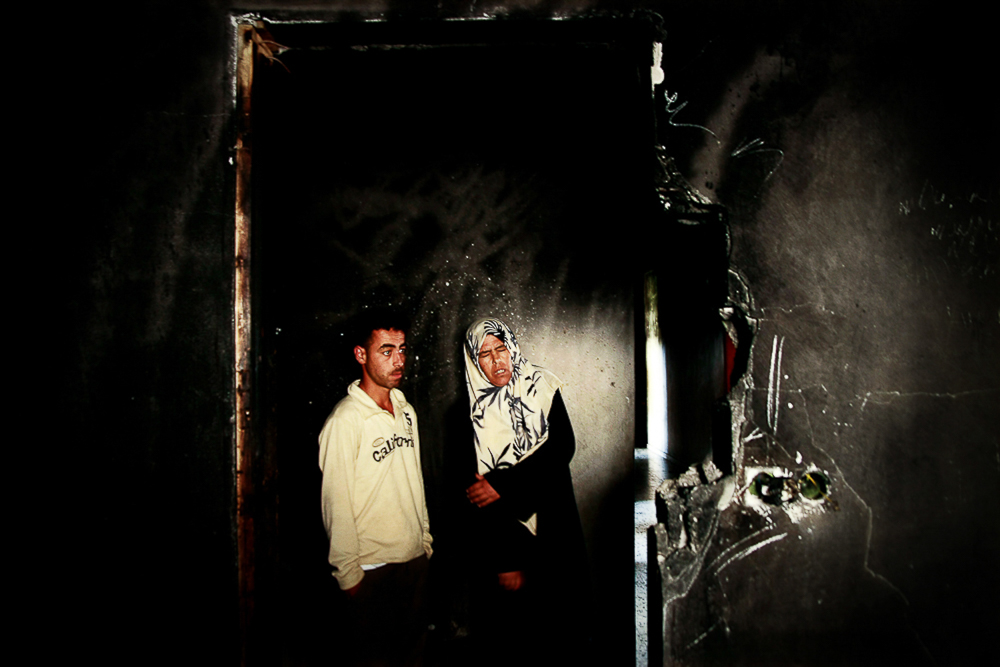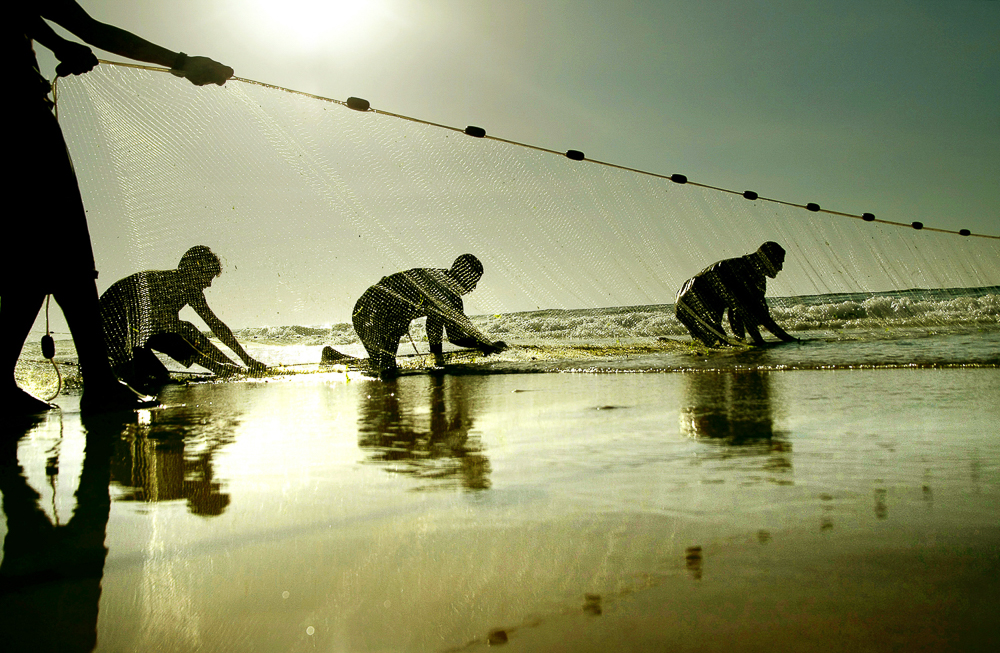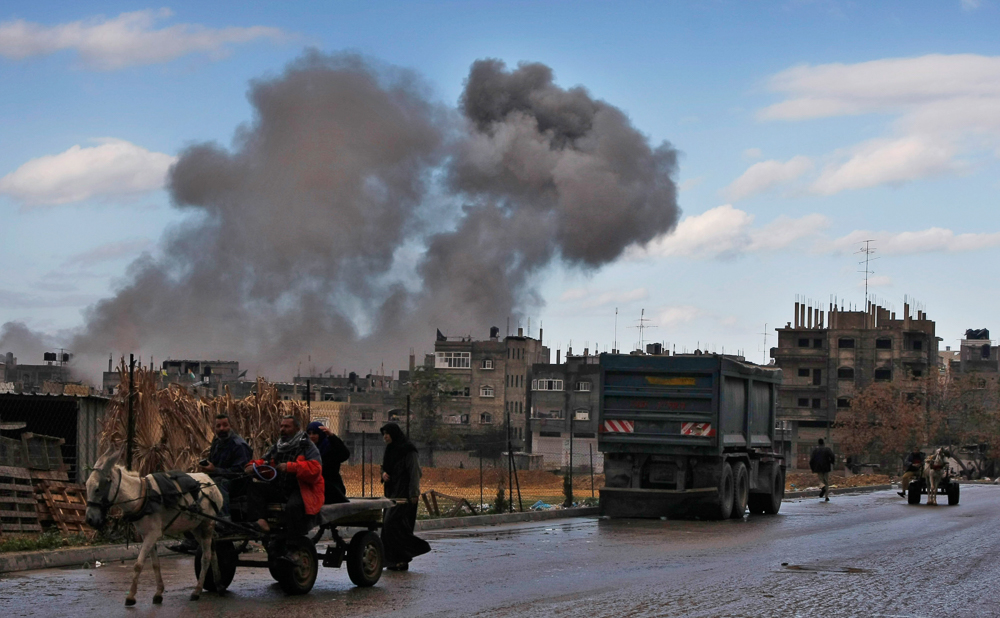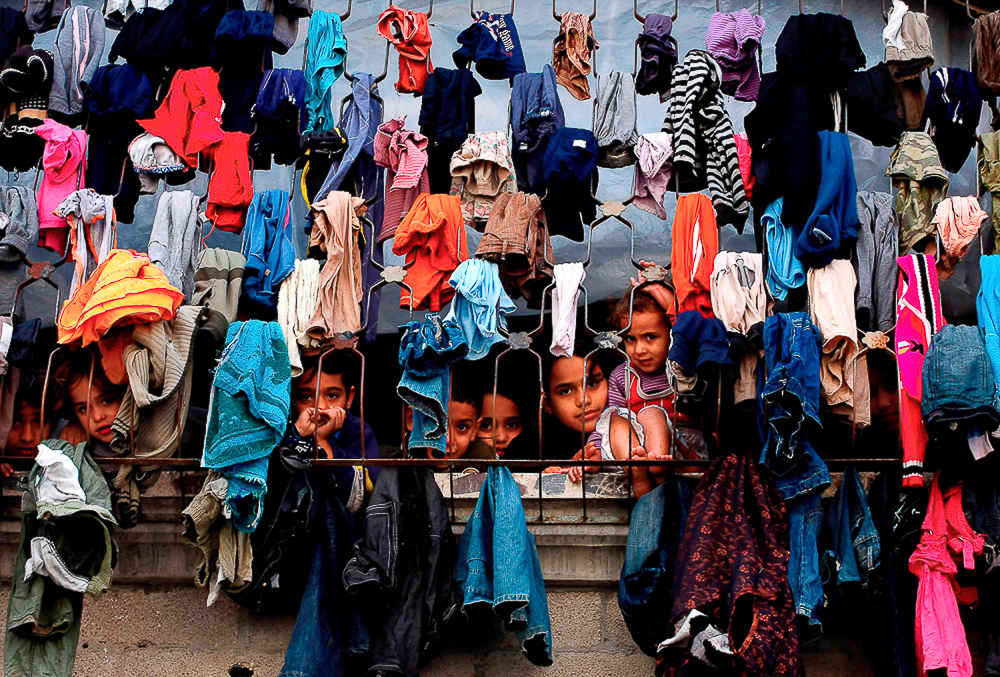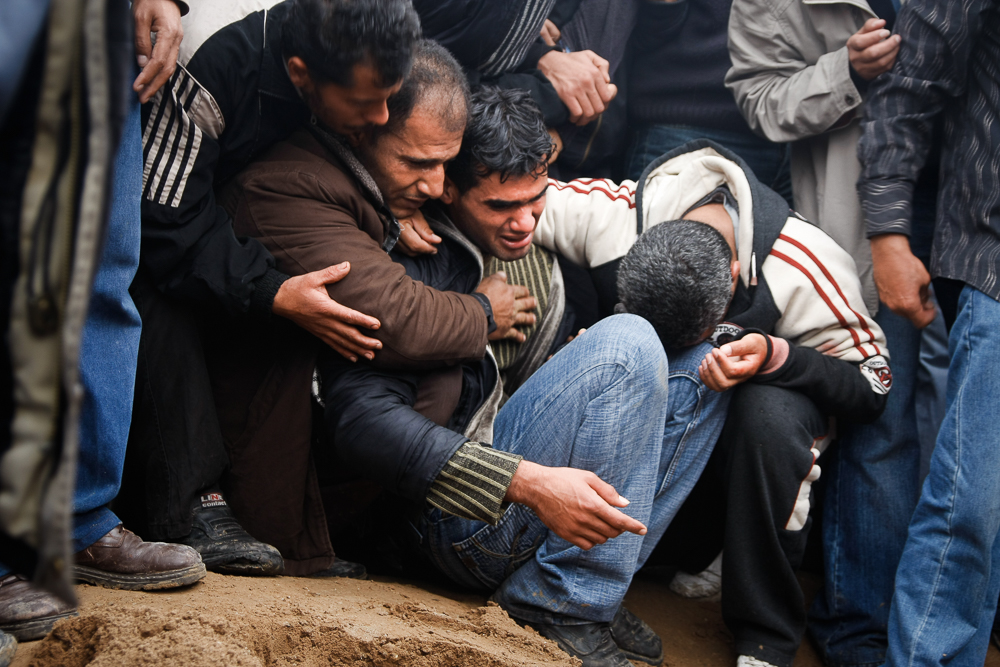Eman Mohammed – The Courage to Tell a Hidden Story
Eman it’s an honor to speak with you and I look up to you so much. You are the epitome of strength and courage, a very powerful woman. I read about you and watched your TED talk, however it’s your images that caught my attention – rather touched my feelings the most. Scrolling through your picture gallery is a painful experience. One cannot leave your page without being deeply moved. But I am a very weak person when it comes down to matters of the heart regards other people’s pain – “War and terror”.
SB: Please tell the world how you ended up taking photos at such a tender age? How did you end up giving a TED talk and living in the US?
While growing up in Gaza I realized in our world you only get one shot. I wanted to make it from my very first shot, and I knew that I didn’t have a famous family name or prestigious connections that would make my career/life path easier – or even in this case possible – so I wanted to work hard and very early on, so that I had enough experience in addition to my degree to achieve my dream of becoming a photojournalist covering the conflict and I thought to myself “maybe elsewhere later on!”. As for the TED talk, it was completely not planned, a very supportive American colleague and a brilliant photographer, Teru Kuwayama, recommended I apply and I did. Amazingly enough after the interview process was done, I got selected, but I was living back and forth between Gaza and the US long before that. I only settled down in the US permanently after the third war in 2014 when my youngest daughter was injured and I evacuated half way through the war, shortly before it ended.
SB: What does Palestine mean to you? Home? And what happened to Palestine? More precisely what happened to Palestine in the last 60 years?
It’s Life to me, way more than just a home, it’s my identity and I feel strongly about everything related to Palestine, it’s more than a land, it’s a life to me and my kids, grandkids after me. Palestine had been under the occupation for the past 68 years, that’s long before I was born and it’s just unacceptable that decades later the world isn’t able to do a thing about it. It’s the shameful dark part of the history, like apartheid was in South Africa, and we cant erase those times but we can stop them from being repeated. Unfortunately I don’t see that happening, humanity is failing Palestinians once more but I trust we will be able to move mountains and I wake up everyday hoping I’ll be one more inch closer to seeing my people and country free and in peace.
SB: Do you see a solution and future for the people of Palestine?
YES! I do, I am 100% confident and sure we will have peace and we will be free but the battle is too brutal and I can’t deny that my trust in humanity has been shaken and many broken parts have been lost on the way, I pray it’s sooner than later, freedom isn’t a gift, it’s a right and it’s just a matter of time.
SB: What do you think when the media calls practically everyone who speaks up for Palestine an anti-Semite? From Bernie Sanders to Noam Chomsky, Corbyn, and foremost Margot Wallström, the foreign minister of Sweden who has been torn apart by international media many times. Are we all anti-Semites?
It’s petty, those who make such accusations for their ignorance, to be anti-Semite, you cant be Semitic yourself and when they accuse someone like Palestinians or Bernie Sanders, Noam Chomsky and others who are basically Semitic originally, it’s like accusing an African American that they encouraged slavery, that’s not possible they are the opposite, they are freedom fighters and those who fear the truth are the ones who make such accusations, it’s getting old and from the very beginning it’s hysterically ignorant, I wish people would learn their own history and others before using fancy terms that make them look smart and sound stupid.
SB: More women more peace. That is my slogan because I feel sisterhood has finally arrived to take back our power from this ancient patriarchy. The world needs nurture and healing, compassion, softness, tenderness and care. What a truly good mother and wife does throughout her life – taking care of her family – but now it’s our planet at stake, not just Syria, Palestine, and basically the whole destabilized Middle East. What is it to be female, generally speaking, in the Middle East? How is it to be a woman in Palestine? How is it to be a mother in Palestine?
It’s tough to say the least, it’s an everyday challenge and a journey of it’s own. Growing up in the Middle East myself, precisely in Gaza, I never understood this male-dominated culture that is taking the area by storm since ages and still does. More women are growing stronger, one generation after another, the less sense it makes to understand why the women’s role was minimized like this, it’s disgraceful.
As for being a mother in Palestine, it’s a heartbreaking situation, from the first moment you realize you were blessed enough to have a baby, until the moment you give in, into the dark fact you’ll not be able to protect them, every mother in Palestine tries to balance normal life challenges and the unique situation Palestinians mothers have to endure not knowing how to overcome it but with more strength, I lived that from day one. I worked day and night to beat this fear and not live in terror whether it’s the war or another invasion or an airstrike. We’ve seen some horrific days, weeks and months, but the worst of all was when my nightmare came true and I was staring at my one year old baby covered in her blood, it takes a village to be a mother in Palestine and I think every mother there has the strength of a village.
SB: Isn’t it a stark contrast to live in Washington D.C. in the United States after living in war-zones? Do Palestinians have a community in D.C.? Do people march around the White House calling on the Obama administration from any Palestinian community? Because obviously we don’t know about it, if it happens at all, because not one American media channel would cover such story in the news.
It’s a different war zone to me to be honest with you, I know people assume I’m all safe and happy but people like happy endings and neglect the fact that we aren’t living a fairy tale and moving to D.C., at least to me isn’t an ending. There is a good community around here, very supportive, open-minded and creative, but also surrounded with obstacles all over, I don’t know about demonstrations but I think in the backstage of the Palestinian community there is much more going on than just demonstrating in front of the White House, my coming project is about the backstage of our community in the U.S., it’s pretty inspiring to me.
SB: Don’t you think religions separate us when they should unite us? What’s the true difference between a Jewish person and a Muslim in Gaza? I mean average people. Are you religious? How do you feel about this ever growing Islamophobia that is planted in the mass population’s head by most of our current Western governments and media channels? Doesn’t it make you feel sad?
I don’t think it’s religion, I think it’s politics covered with what looks like a religious outfit but it’s just camouflage to make people easier to guide and mislead, which we’ve witnessed in all type of religions. I’m a believer and very proud of my religion and that never stopped me from being strongly connected with friends from all sorts of backgrounds, religions and the non-religious ones, that’s never been the way I was raised in Gaza, my mom played a great role in that, she decided to send me as a kid to a church school and did her best to show me the common grounds and I grew up “religion blind” if there is such thing, meaning that I don’t know what you believe in but I’ll respect it and honor it as long as you’re letting others have the same right and not blocking theirs in order for you to enjoy yours.
SB: What is your message to Margot Wallström? What would you like me to ask from her? In addition, if you were a spokesperson for Palestine what would you ask from world leaders and the chief editor of the Guardian, NY Times and all major media channels who hardly post any news on the daily injustice that is happening to the Palestinian people by the Israeli Army?
To Margot Wallstrom :
“You’re the type of woman that would hold her ground no matter what and inspire others to do so, for that I’m grateful. Continue telling the truth as it is, no sugar coating or compliments because your strength as a leader inspires other women to follow the same path and make a life-changing decision somewhere, despite you not knowing it. I hope I’ll have the pleasure of thanking you in person.”
To the news agencies, the truth is we’ve never been the real storytellers in any of the stories we cover, we’re the messengers, and it’s no less important of a role, but the story “subjects” are the storytellers and the fact that our newspapers and front pages can’t function without having “explosive headlines” with blood all over, the fact that we would only care if someone dies, is unacceptable, because no matter how “professional” you would like to be labeled, it will not mean a thing when you’re less of a human being. So before we go all journalistically ethical and non-ethical on public podiums, let’s care about the quality of news we’re spreading, let go of the firework reports because the stories that changed the world the most were happening in the most quiet places.
SB: With this interview Eman, I’d like to show the world who you are first of all, expose your wonderful work, but foremost to stand with you and the so many unheard victims who died and have been killed and wounded in Palestine in the last 60 years.
http://www.emanmohammed.com/
